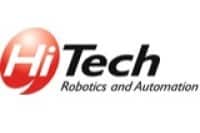Why has the qualifying criteria been put in place?
The economic contribution of employee-owned businesses in the UK is significant and growing. Greater productivity and higher levels of innovation whilst being more resilient to economic turbulence are some of the benefits achieved through employee ownership that research has identified.
The qualifying criteria is in place to ensure that the employees, as beneficiaries, receive these benefits and that exiting shareholders are not abusing the generous tax reliefs on offer as part of this exit strategy.
Who is eligible for an EOT?
EOTs are mostly seen as an option for traditional limited companies however, limited liability partnerships and companies that form part of a wider group can also adopt the structure. Almost any type of business can transition to employee ownership with the assistance and expertise of an experienced professional advisor, although it may not be suitable for every business.
Are there any disqualifying criteria?
Any breach of the key qualifying conditions could result in a removal of the tax reliefs, the key qualifying conditions are as follows:
- The company must be trading;
- The acquiring trust must own a controlling stake in the company on behalf of the employee beneficiaries, and the controlling stake must apply to share capital as well as voting rights;
- Trust property must generally be applied for the benefit of all eligible employees on the same terms. But the trustees may distinguish between employees on the basis of remuneration, length of service and hours worked.
Who can be a trustee of an EOT?
The so called trustees of the EOT are typically the directors of a corporate trustee company which holds the shares in the trading company/group. Their role is to ensure that the company is being managed (by the directors of the trading company) in the best interest of the employees as a whole. The exiting shareholders may sit on the board of the trustees; however they should form a minority in order to demonstrate the change of control.
Trustees may well be exiting shareholders, current directors and employees of the trading company, or persons independent of the company such as solicitors or accountants, or professional trustees. It generally depends on the size of the company/group – a trusted and experienced EOT expert would offer advice on this.
Our EOT advisers
We have advised many businesses to complete their transition to employee ownership. Hawsons have been working with businesses on EOTs since they were introduced in 2014, completing our first deal in 2016.
We are a member of the Employee Ownership Association who represent organisations that are employee-owned or transitioning to employee ownership across the UK.
Pete Wilmer
Corporate Finance Partner

Pete Wilmer
Senior Partner
Pete leads the Corporate Finance offering across the firm, having has spent much of his career within a large international accountancy firm and corporate banking before returning to Hawsons, where he started. Working with businesses of all sizes, Pete has an exceptional breadth of experience which he brings to the benefit of clients.
An early adopter and passionate believer in good employee ownership, Pete has helped numerous businesses transition to employee ownership and works extensively to promote the employee ownership model.
Related content
TMS Europe complete transition to an Employee Ownership Trust
Peter Wilmer and Jack Ware, members of the Hawsons Corporate Finance team, acted as lead advisors for TMS Europe Limited’s (“TMS”) transition into employee ownership. Ryan Fitzpatrick from Shakespeare Martineau LLP provided legal advice on the transaction. TMS Europe...
Hi-Tech Automation – 12 months into Employee Ownership
Employee Ownership is where the whole or part of a Company is owned by, or on behalf of, its employees. The government introduced some new and relatively generous tax reliefs for employee-owned companies in 2014 and since then Employee Ownership Trusts (“EOTs”) have...
Employee ownership trust problems
In this article, we are going to outline some of the problems that might arise if the transition to employee ownership is not managed and advised on correctly.Valuation of the company When selling your business to an EOT it is very important that you keep the...




